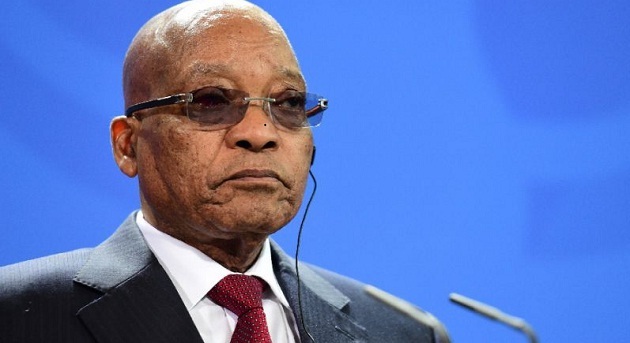
Johannesburg, South Africa | AFP |
South Africa’s local elections delivered a sharp setback to the African National Congress (ANC) on Thursday, as partial results showed falling support for the party that ended apartheid.
With about 80 percent of the vote counted, the ANC was ahead nationwide but it recorded its worst electoral performance since white-minority rule fell 22 years ago.
The main opposition Democratic Alliance (DA) was on course to hold Cape Town and was just ahead in the coastal city of Port Elizabeth.
The capital Pretoria and the economic hub Johannesburg were a close fight between the DA and the ANC.
The results, which were expected to be concluded on Friday, open up a new era of local coalition politics in South Africa.
The ANC has won more than 60 percent of the vote at every election since the country’s first multi-racial vote in 1994 when Nelson Mandela was sworn in as president.
On Thursday evening it was on 54 percent — down from 62 percent in the last municipal elections in 2011.
The DA was on 27 percent with the radical leftist Economic Freedom Fighters (EFF) on seven percent, according to official results.
“The ANC is really losing ground, but it can join other political parties to form coalitions,” Shadrack Gutto, director the Centre for African Renaissance Studies at the University of South Africa, told AFP.
“The politics of the country are changing at the local level and that will escalate come the general election in 2019.”
Wednesday’s vote was also a judgement on President Jacob Zuma, who has been plagued by a series of scandals since taking office in 2009.
A flat-lining economy
An unemployment rate of 27 percent and GDP growth at zero percent this year have also eaten into his popularity.
“We have grown incredibly in several places, I’m quite happy,” Mmusi Maimane, the DA’s first black leader, told reporters.
He ruled out any local coalition deals with ANC, saying: “We can’t campaign for change, and then team up with them.”
Millions of voters had queued outside polling stations after an occasionally bitter campaign marked by disputes over alleged racial slurs.
A final Ipsos survey had placed the ANC and DA neck and neck in key cities after some undecided voters drifted back to the ruling party.
“Democracy is maturing so you will find… a dilution where you might not have very strong support for one party,” ANC treasurer Zweli Mkhize said as results were still being announced.
“We still remain quite positive.”
Both the ANC and DA will be likely to court smaller parties and independent candidates to cobble together majorities in some municipal areas.
“There has been a sharp, record swing away from the ANC towards DA and EFF,” Peter Montalto of Nomura Bank said in a note.
“The metros remain too close to call, but it looks likely that the DA will take Nelson Mandela Bay (Port Elizabeth) and the ANC will keep Johannesburg.”
Contesting its first local poll after bursting onto the scene in the 2014 general election, the far-left EFF may emerge in the influential role of kingmaker.
The party, which won six percent of the national vote in 2014, advocates land redistribution without compensation and the nationalisation of mines.
Turnout was about 58 percent as voters chose mayors and other local representatives responsible for hot-button issues including water, sanitation and power supplies.
Problems providing such basics trigger regular and sometimes violent “service delivery” protests in South Africa, where harsh socio-economic divisions remain a grim legacy of the apartheid era.
Zuma, 74, has faced increasing calls to step down before his second term ends in 2019 but he retains deep loyalty within the ANC party and in rural parts of the country.
 The Independent Uganda: You get the Truth we Pay the Price
The Independent Uganda: You get the Truth we Pay the Price


